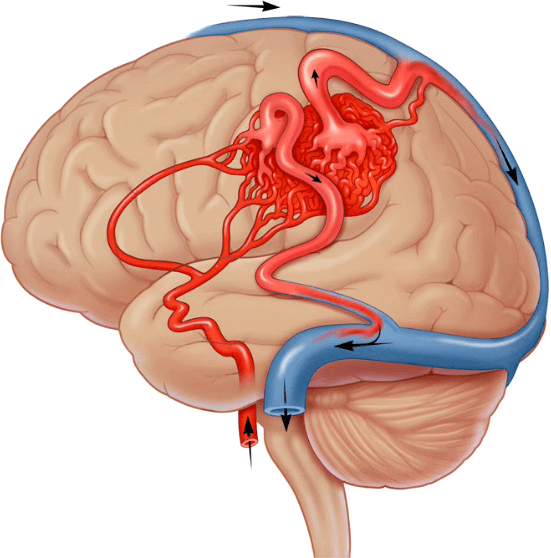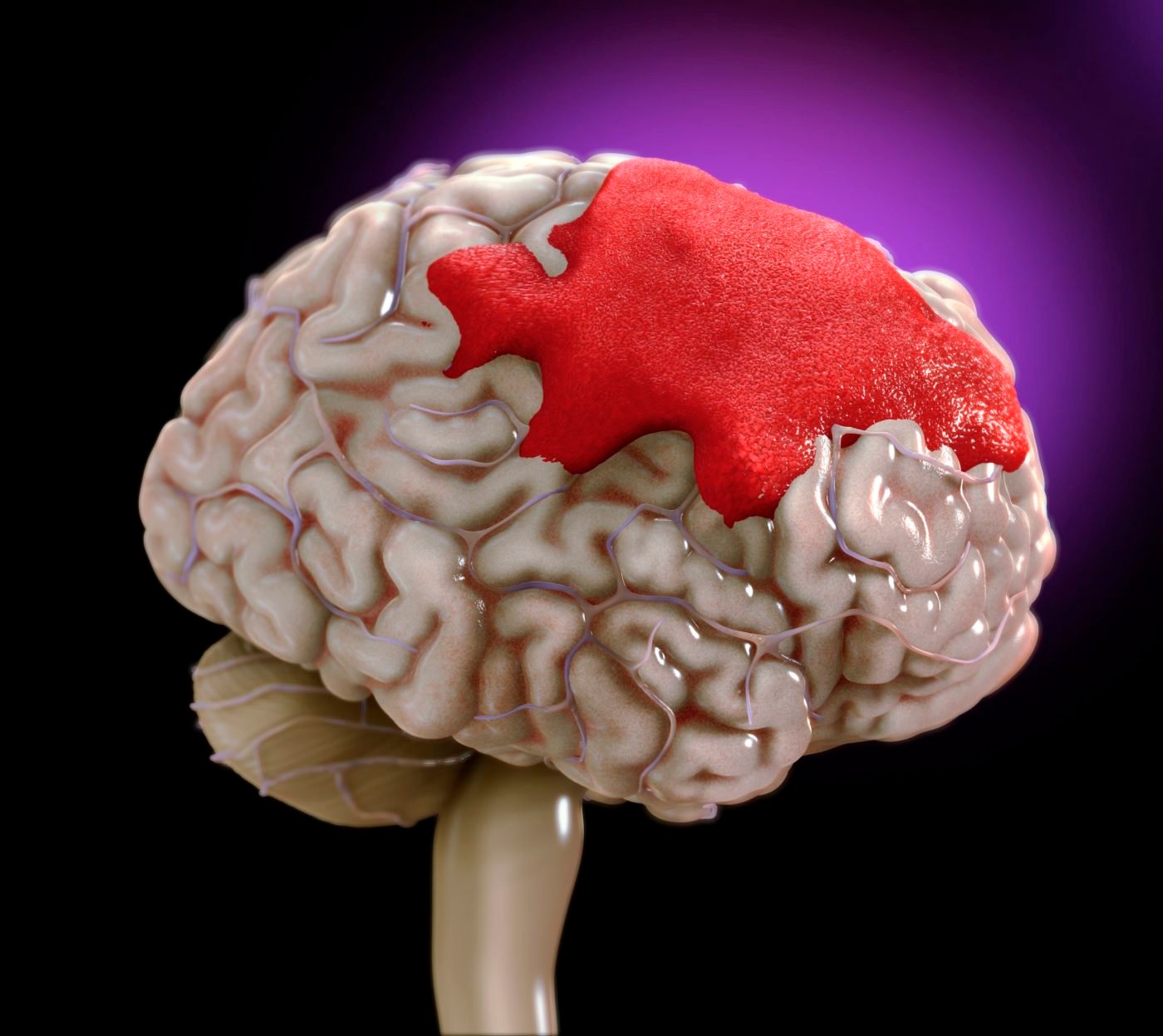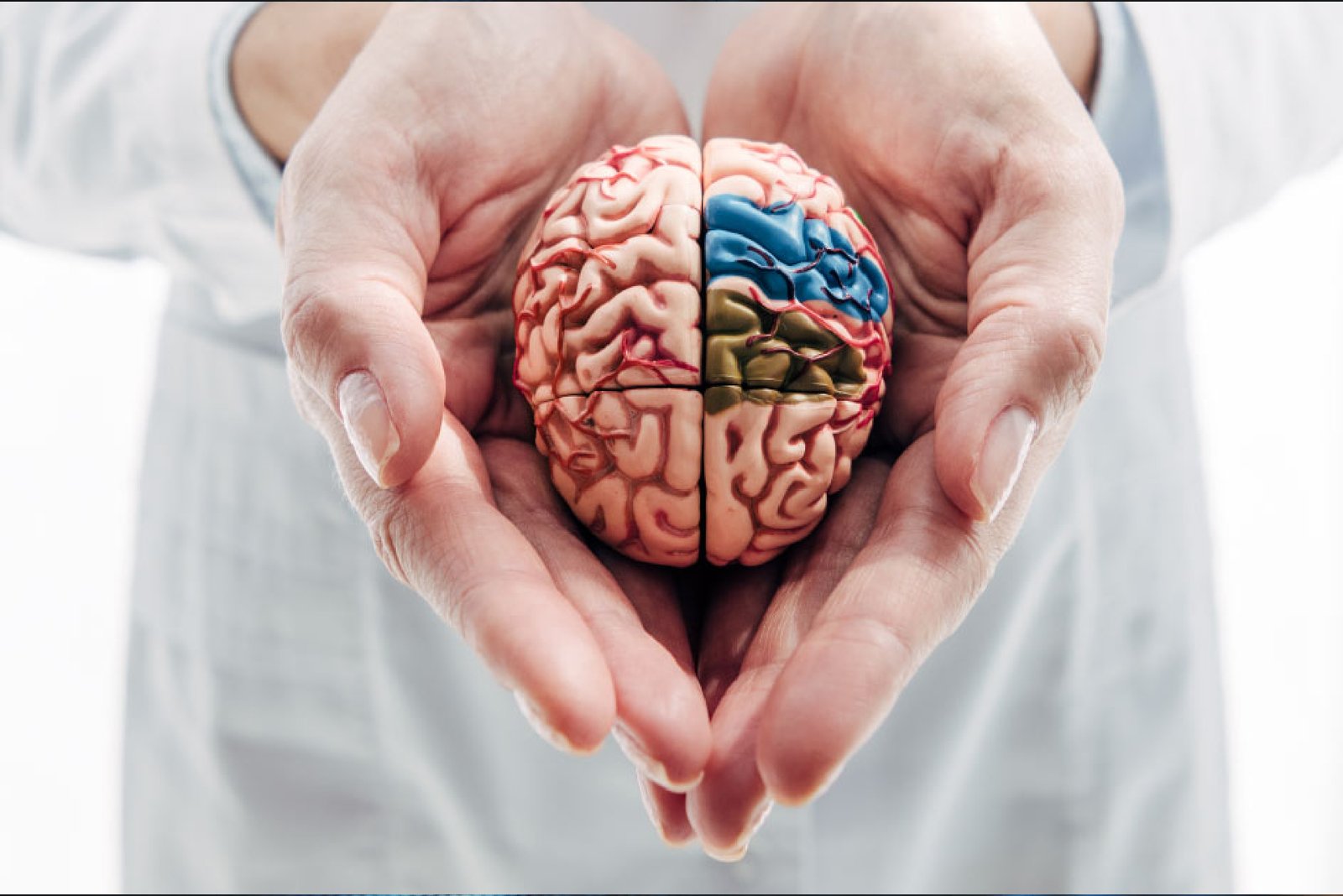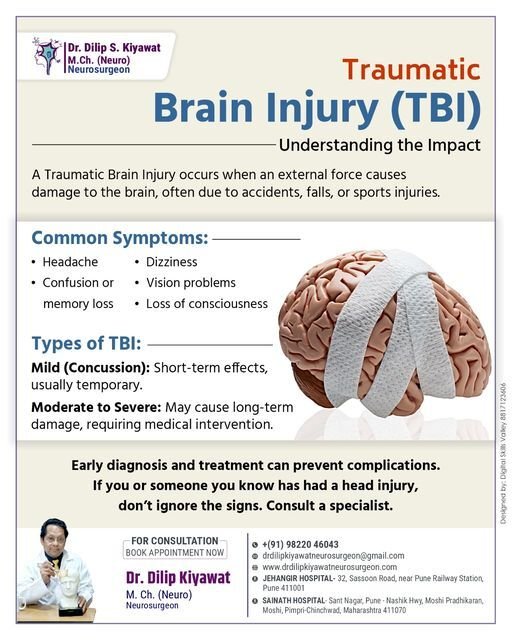Traumatic Brain Injury (TBI) is a serious medical condition that occurs when an external force, such as a blow or jolt to the head, causes damage to the brain. This type of injury can result from accidents, falls, sports injuries, or other traumatic events, leading to temporary or permanent impairment in brain function. This blog provides an in-depth look at TBI, its symptoms, classification, and available treatment options to help patients and their families understand this complex condition.
What is Traumatic Brain Injury (TBI)?
A Traumatic Brain Injury happens when the brain suffers a sudden physical impact that disrupts its normal functioning. The extent of damage can range from mild (concussion) to severe, depending on the intensity of the trauma and the areas of the brain affected. TBI can lead to a variety of symptoms and complications, affecting physical, cognitive, and emotional health.
Common Symptoms of TBI
The symptoms of TBI can vary widely depending on the severity of the injury. In mild cases, the symptoms may be subtle and develop gradually, while more severe injuries can cause immediate and pronounced effects. Common symptoms to watch for include:
Headache: One of the most common symptoms of TBI, which can range from mild to severe.
Confusion or Memory Loss: Difficulty remembering recent events or feeling disoriented.
Dizziness: A sensation of spinning or loss of balance.
Vision Problems: Blurred vision or difficulty focusing.
Loss of Consciousness: This can range from a brief blackout to a prolonged state of unconsciousness.
Drowsiness or Lethargy: Feeling unusually tired or having trouble staying awake.
Mood Changes: Irritability, depression, or anxiety are common aftereffects of TBI.
Types of Traumatic Brain Injury
TBI is generally classified into two main categories based on severity and symptoms:
Mild TBI (Concussion):
This type involves temporary disruption of brain function.
Symptoms may include headache, confusion, dizziness, and difficulty concentrating.
Most individuals recover fully within a few days to weeks with appropriate care.
Moderate to Severe TBI:
These injuries can cause long-term or permanent damage.
Symptoms may include loss of consciousness for extended periods, significant cognitive or motor deficits, and severe mood or behavioral changes.
Recovery often requires medical intervention, rehabilitation, and ongoing therapy.
Diagnosis of TBI
Early diagnosis is critical to managing TBI effectively and preventing further complications. The following diagnostic tools are commonly used to evaluate the severity and impact of TBI:
Physical Examination: A neurologist or specialist will assess symptoms such as consciousness level, pupil response, and reflexes.
Imaging Tests: CT scans or MRI may be conducted to visualize the brain and identify any bleeding, swelling, or fractures.
Neuropsychological Tests: These tests help evaluate cognitive functions, memory, and problem-solving abilities.
Treatment Options
Treatment for TBI depends on the severity of the injury and the symptoms experienced by the patient. Here are some commonly used treatment methods:
Rest and Observation: Mild TBI cases (such as concussions) typically require rest and monitoring of symptoms. Avoiding activities that could cause another head injury is crucial during recovery.
Medications: Pain relievers may be prescribed to manage headaches. Medications to control seizures, reduce brain swelling, or address mood disorders may also be used.
Surgery: In cases of severe TBI, surgery may be necessary to remove blood clots, repair skull fractures, or reduce pressure within the skull.
Rehabilitation Therapy: Physical, occupational, and speech therapies are essential for recovering motor skills, improving communication, and regaining independence.
Counseling and Support: Psychological counseling can help address emotional changes and provide support for coping with the long-term effects of TBI.
Preventing Complications and Promoting Recovery
Prompt medical attention and appropriate treatment can significantly improve the prognosis for TBI patients. Here are some tips to promote recovery and reduce the risk of complications:
Follow Medical Advice: Adhere to treatment plans, take medications as prescribed, and attend all follow-up appointments.
Gradual Return to Activities: Avoid strenuous activities and gradually return to normal routines under medical supervision.
Emotional Support: Coping with TBI can be challenging for both patients and families. Seeking support from counselors, support groups, or therapists can help manage emotional and psychological stress.
When to Seek Medical Help?
If you or someone you know has sustained a head injury and is experiencing any of the symptoms mentioned above, it is crucial to seek medical attention immediately. Ignoring the signs of TBI can lead to serious complications, such as prolonged unconsciousness, permanent cognitive deficits, or even death.
Expert Consultation and Care
Dr. Dilip S. Kiyawat, M.Ch. (Neuro), a highly experienced neurosurgeon, offers expert consultation and treatment for Traumatic Brain Injury. With a commitment to providing personalized and compassionate care, Dr. Kiyawat helps patients navigate the complexities of TBI and achieve the best possible outcomes.







